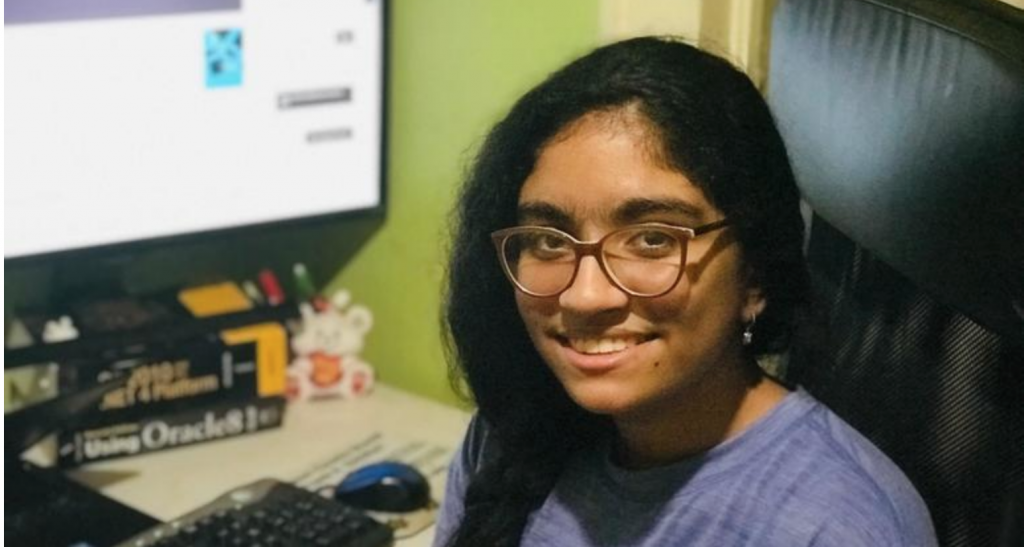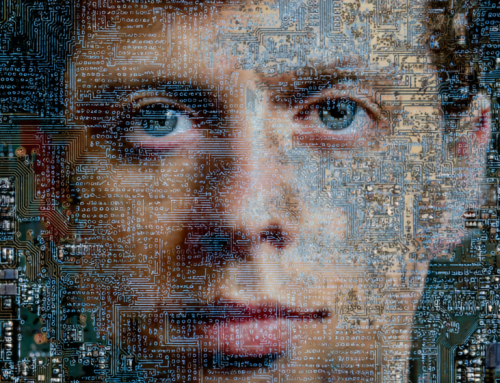
Harita Suresh, 13, figured out how to build a chatbot that answers questions for college-bound students who plan to study through her father’s company. (Source: IBM Skills Network)
13-Year-Old Develops Chatbot to Assist Students with College Entry Tests
I don’t remember exactly what I was doing at the age of 13. I imagine my time was spent with Little League and comic books. In spite of the COVID-19 lockdown, not all 13-year-olds have been wasting their time. One bored New Jersey girl, in particular, spent her time building a chatbot. In two weeks. Yes, in two weeks.
A story on techrepublic.com by N.F. Mendoza describes how the “technology enthusiast” teenager, Harita Suresh, developed her chatbot.
Using an online course from IBM Skills Network’s “AI chatbots without programming,” she started from scratch in learning artificial intelligence coding, but was eager to learn through the self-paced course.
“Harita is more than a little familiar with tech, ‘I have been interested in technology since I was 5,’ she said. ‘My first coding challenge was the Lightbot Hour of Code. I was fascinated that the code I wrote could control the actions of the characters on screen. Since then, I pursued coding on multiple platforms like code.org, CodeMonkey, and CodeCombat. The more I learned about tech, the more I wanted to know. In fifth grade, I took a Python programming course offered by Georgia Tech.’
Harita has been exposed to computers from a young age, as her father is involved with a local college and her mother has taught coding. Two weeks after starting the IBM course, she created and launched a fully functioning IBM Watson-powered AI chatbot named Rita. It was designed for the business her father, Suresh Kashyap, runs, Analyze-Ed, a college and career-readiness platform.
Harita estimates it took her about a week to develop Rita, and said “the planning stage” took two days, development took five days. Harita then integrated Rita into Analyze-Ed.
How Rita Works
Rita provides information about the ACT, SAT, and PSAT standardized tests, including test dates, test lengths, calculator policies, and more. She also answers questions about the Pareto analysis method used by Analyze-Ed. If Rita can’t answer a question, she redirects the user to a human agent.
Rita begins by answering questions to reduce student anxiety surrounding standardized tests—and highlights Analyze-Ed’s offerings. After Rita’s launch, Harita and her father retrained Rita to deal with support and business development questions.
Just a little something the teenager put together after gathering information online and figuring out how to do it. And she is not alone. Lots of people have gotten serious about upgrading their computer knowledge, according to a report from Udemy.
What will Suresh, a freshman this fall, do in the future? She wants to earn a Ph.D. in AI “to leverage the power of AI to battle poverty.” According to Suresh:
“Fixing poverty requires knowing where it occurs,” and advocates for better statistics for developing countries, “AI can analyze economical and geospatial data for different countries and identify poverty levels. Then AI can determine the underlying causes of poverty, and offer possible solutions, like growing resilience crops, or using smart chatbots to counter illiteracy.”
Based on her skills already, it won’t be any surprise if she makes the kind of impact on the world that she hopes for.
read more at techrepublic.com







Leave A Comment